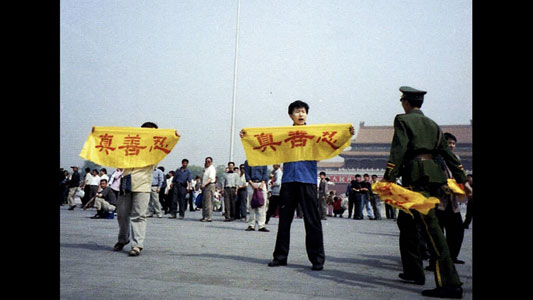This post was contributed by Raluca Soreanu, a Marie Curie Research Fellow in the Department of Psychosocial Studies, currently researching peace activism in Brazil.
[Homepage image of Brazilian protests: Agência Brasil.]
To move from Tahrir Square, to Syntagma Square, to Puerta del Sol, to Zucotti Park, to Gezi Park, to Brazil’s recent “20 centavos” movement, to capture their common rhythms as well as their distinctiveness, we might need a new vocabulary. To meet radical changes in the political imaginary, a new semiotics is called for. In Bracha L. Ettinger’s words, I wish we could slow-think, slow-feel and slow-paint these movements, in ways which overlay one form of understanding with another and with yet another. We could thus move beyond the hastiness of boxing one of the indeed unsettling semiotisations which the Brazilian movement has produced – “o gigante acordou” (“the giant has awoken”) as simply an instance of fascism. In the womb of the giant in the past week, I have encountered forms of social creativity and forms of sociability that invite me to slow-think. In the womb of the giant, people took care of one another, intervening to protect one another from being trampled. They met with strangers across their strangeness and across the colour codes of political parties. Surely, we will need to look closely at this alternative urban traffic of large manifestations, and see how it fits within the movement for the right to the city. There were also important forms of defence of patrimony, where the multiplicity of people surrounding a monument decided on the spot that the locus of memory that it carries is more important than the grievance of one individual who wishes to stand on its pedestal. Surely, this is not a movement toward the indiscriminate and confusion, but a collective spiral toward clarification on what matters and what needs to be preserved. And so, the chant “Vem vem vem pra rua vem!” (“Come come come to the street come!”) emanating from thousands of people on the same beat with one another is something quite localised when we shift to a new semiotics (perhaps a Deleuzian-Guattarian semiotics) where meaning is facialised and corporealised. What is the facialised consciousness and the rhythmic embodiment of the protester who does not aggress but protects, who does not provoke but contains, who does not destroy but creates political artefacts?
A multitude of voices
While many voices decry the lack of political organisation, I saw compelling organisation. How many times in our lifespan did we set a political rendezvous with 300.000 people and everyone showed up? With this new phenomenon of mobilisation we have temporarily lost our ability to count: there might have been 300.000 people out on the streets of Rio de Janeiro, or less, or more, nobody knows. This loss of the ability to count does not solely mark the scale of the protest, but its transcendence of the very context for counting and screening which the urban texture sustains. We couldn’t count the protesters because they circulated in a new way, constituting new flows of large gatherings: they were circular, oblique, spiralling, rather than just merely passing though obligatory points or grids. Zooming in, observations on robust forms of organisation continue. A community I follow closely, that of Horto Florestal, planned its presence thoroughly, walked for hours to the centre of the city, in defence of their right of dwelling, which is threatened by the redefinition of the boundaries of the Botanical Garden. There was an impressive anti-homophobia mobilisation nested within the protest. These are just instances of the plurivocality – for there were also the “negros” and the “sem-terra” embodying their long histories of struggle. There were militants of conventional party politics. And, surely, the extreme right performing its usual abuses and aggressions, but not in a position to engulf the whole vitality of the movement in its morbidities.
A temporary museum of grievances
There is plentiful organisation that we do not see for we might need a new semiotics; but there is also organisation that we do not see for there is a constant motion for opacity by an order that wishes to preserve itself unaltered. We here might need to think in terms of the lifespan of political artefacts surrounding the protest. The immense gathering in Rio de Janeiro produced thousands of banners carrying the messages of people and groups (in registers from tragic to ironic, to robustly humorous). These many hundreds of square metres of political expression were displayed on the fences of the Praça da República. People literally weaved their banners onto the fences, organising a museum of grievances. These compelling materialities, which would have helped us in the process of looking at ourselves and at one another, were no longer there ten hours later. They had been removed, cleaned away with the rubbish. I went back in the morning, anticipating the loss of this political object, and all that was preserved were the remains of broken glass panels of some bank headquarters, aiming to create an alternative museum of vandalism, underarticulation and indiscrimination. If anything, the fence of political grievances was discriminate, in its contents and weaved constitution. This too short and unaccomplished life of political artefacts speaks about capitalism’s capacity to consistently efface all traces of an emergent alternative political rationality.
The sound of war
On the scene, there is another force that disorganises. The simulation of the sound of war. On the day and night of the immense gathering, the streets sounded like war because of the constant background noise of explosions. What was exploding were the “bombas do efeito moral” (“bombs with moral effect”), as they are called here, in a perplexingly self-disclosing way. These bombs are used by the Military Police to intimidate and contain by sound a potentially or actually violent adversary. This is an ill-contained tool for containing violence, however: it does not act locally, it acts on the entire protest, even miles away; it does not clarify where actual violence might be taking place, so that protesters have a chance to synchronise away from it, or against it, but it multiplies it. But it is a fake bomb. It does not belong. Sly-bomb. Part-bomb. These tools of war institute a dangerous (and immense!) scene of constant re-traumatisation, where we indeed might lose all control we might want to be holding on to, and things might indeed drift anywhere. There are very recent traumas related to the Unidades de Polícia Pacificadora (UPPs) entering the Rio de Janeiro favelas, starting in December 2008. Memories of violence here are overlaid on one another, and none of them are respected or creatively put to work by sinking 300.000 people in the sound of war. Why should we feel, because of sound, as if we were in war? What happens to the memories of the true deadliness and death-fulness of the bomb, within this simulated bombardment? Part of the right to the city is precisely that of not feeling as though we were in war times, if we are not.
“Solidarity with the wretched of the earth”
And finally, a question I constantly return to these days: how do academics live the morning after? How does the university organise itself in relation to the polity, despite all the structural constraints, the novelty of the phenomenon to be dealt with, and the uncertainties that come with it? It is perhaps the time to return to Adorno’s thought on “solidarity with the wretched of the earth” and work humbly from there on. The matter of organisation is for me first and foremost a matter of self-organisation and of organising the proximities of our lived life. This movement will not call for leaders. It will and does call for co-inhabitors within a historical transformation. Some of the lawyers of Rio de Janeiro, for instance, responded beautifully to the local challenges, by offering their expertise to those who were subject to police abuse. I think of it as lawyer kairós. I believe the university can fast-organise frames of utterance where we can slow-think what is happening on the streets of Brazil. The intervention that I see myself a part of is one that will struggle to ensure that the fabric of the collective process we are experiencing is not being constantly ruptured and traumatised by the simulation of the sound of war. Thus, people and groups that are already thoroughly organised can sit together and organise themselves further, instead of having more recent or more distant violent past times enforced upon them.






